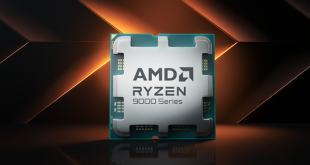Officially, Intel Corp. allows overclocking of its X- and K-series microprocessors on mainboards based only on the X- and Z-series core-logic sets. However, from time to time the company and its partners make exceptions in a bid to allow more affordable overclocking. It looks like this may happen with the latest Core i5 and Core i7 “Devil’s Canyon” processors as well as the Pentium anniversary edition chip.
While all Intel's K-series microprocessors (such as the Intel Core i7-4790K) with unlocked multipliers (something that is compulsory for overclocking these days) are compatible with mainboards based on various chipsets, it is only possible to take advantage of unlocked multipliers on motherboards based on the Z-series core-logic (such as the Intel Z87 or the Intel Z97). Last year Asustek Computer and several other leading makers of motherboards allowed customers with new LGA1150 mainboards based on the “non-Z” chipsets to overclock their Core i5-4670K and Core i7-4770K processors with the help of special BIOS versions. According to a media report, the same is going to happen this year.
Tom’s Hardware reports that Asus prepares to release new UEFI BIOSes for its H87, H97, B85, and H81 series motherboards that will enable support for overclocking by changing multipliers of unlocked chips. It is projected that the new BIOS will allow to overclock all unlocked microprocessors from Intel, including the latest Core i7-4790K, the Core i5-4690K as well as the Pentium G3258 (the anniversary edition).
Expensive mainboard may not be necessary for overclocking…
While the owners of the high-end Core i7-4790K and the Core i5-4690K most probably do own advanced mainboards to better overclock their systems, those, who plan to overclock the Pentium G3258 for $75/£53 usually do not buy expensive motherboards. To offer such customers a solution, mainboard makers either have to design low-cost platforms based on the expensive Z-series core-logic, or simply allow to overclock on affordable motherboards. Apparently, Asus decided to do the latter.
Last year virtually all leading makers of mainboards, including Asustek Computer, Asrock, Biostar, Elitegroup Computer Systems (ECS) and Gigabyte Technology enabled the so-called “non-Z” overclocking capability on various LGA1150 mainboards. Not all BIOS revisions supported the feature, though. Since Intel does need to sell its chips, including the affordable Pentium G3258, it will probably allow manufacturers of mainboards to enable “non-Z” overclocking for the new central processing units, at least, for a limited amount of time.
Asus and Intel have not officially confirmed the plan so far.
Discuss on our Facebook page, HERE.
KitGuru Says: Obviously, the “non-Z” overclocking will be rather unofficial since Intel needs to sell the Z97 chipset, whereas mainboard makers need to sell expensive motherboards. However, it is still nice to see that overclocking of inexpensive components will remain an option…
 KitGuru KitGuru.net – Tech News | Hardware News | Hardware Reviews | IOS | Mobile | Gaming | Graphics Cards
KitGuru KitGuru.net – Tech News | Hardware News | Hardware Reviews | IOS | Mobile | Gaming | Graphics Cards



